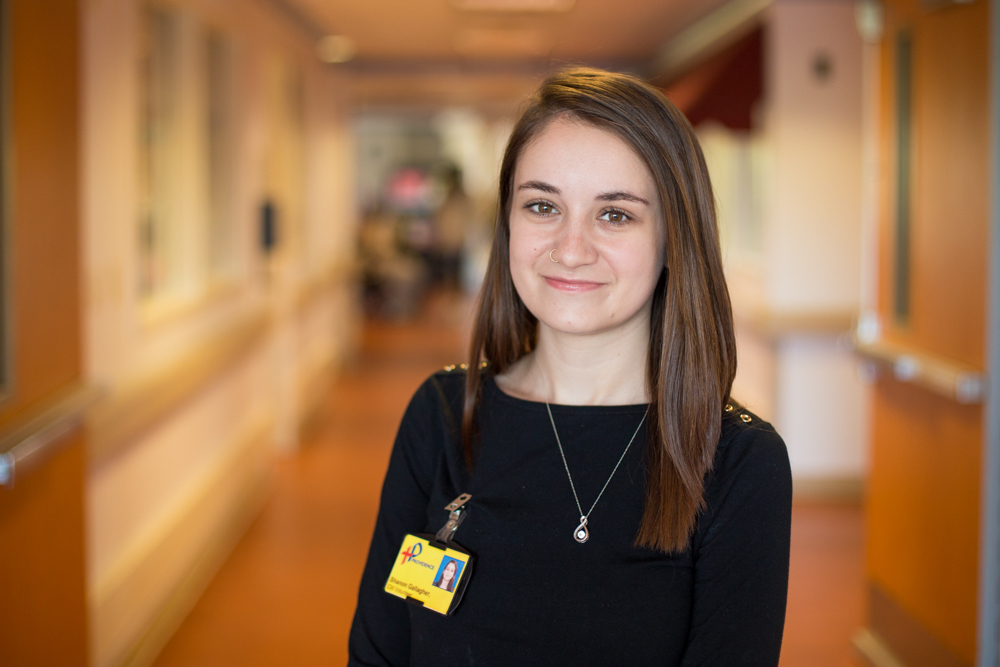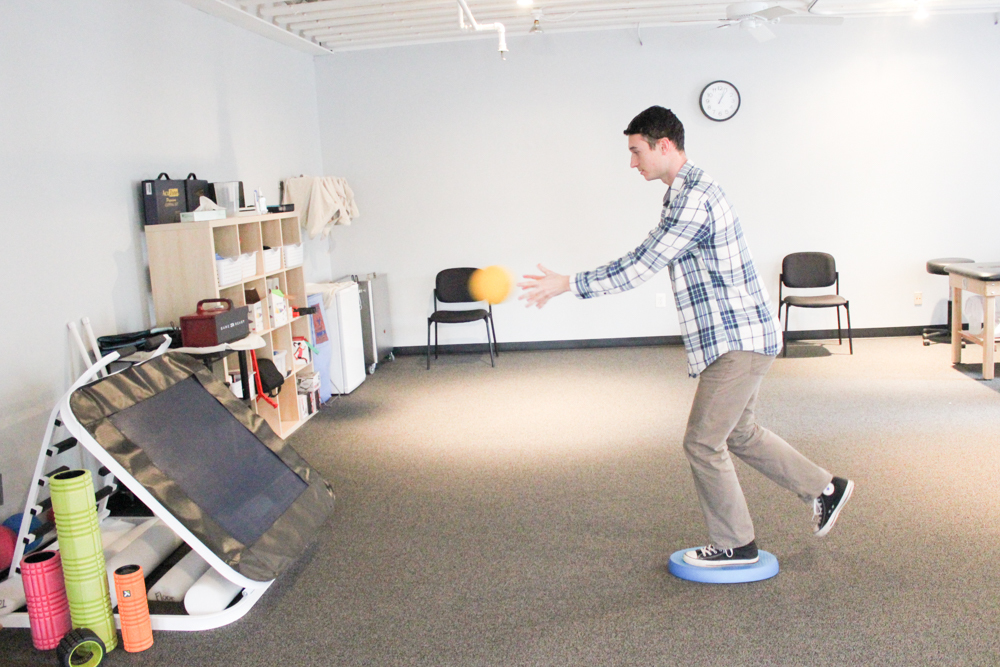After spending last summer interning at a health clinic in Washington DC, nursing major Ashlyn Eby returned to her senior year studies at Eastern Mennonite University with some valuable field experience and a more realistic picture of the healthcare world.
Eby says getting out of the classroom and into the real world to interact with patients of all ages and backgrounds, including marginalized populations, has led her to a better understanding of the many factors involved in providing quality care.
To gain this experience, Eby enrolled in EMU’s Washington Community Scholars’ Center, a program that offers professional internships and a community living experience located in the nation’s capital. She interned with Community of Hope, a community health clinic that provides quality healthcare and housing to families. Eby was on two interdisciplinary teams with goals of reducing uncontrolled diabetes and hypertension in the population they serve.

“WCSC’s program has enabled our nursing students to gain experience in the health care field that significantly broadens their perspective and prepares them for the workforce,” said Professor Melody Cash, undergraduate nursing program director. “Our students return with increased confidence, increased skills, and practical knowledge gleaned from interacting with colleagues in the field.”
Internships such as those offered through WCSC also provide nursing students with valuable professional references when they begin job hunting, Cash added. “These experiences always provide opportunities to not only show capacity for but also grow in professional communication, teamwork, collaboration and organizational skills.”
Nursing, pre-med and other pre-professional health sciences majors have great opportunities in Washington D.C. to find rewarding and challenging internships, says program director Professor Ryan Good.

WCSC programs run in the fall and spring semesters. Participation fulfills EMU’s intercultural requirement. Typically a semester experience fits best in the spring of sophomore year prior to beginning the clinical level of the program, Cash said.
Other options for nursing students include participating in the summer between junior and senior year. The program has a strong reputation for placing students in internships that often lead to full-time job offers after graduation.
Read more about successful students who were offered full-time employment after graduation (two computer science grads were just the latest: Tessa Waidelich ’21 and Terry Jones ’21).
Learn more about summer 2022 internship placements here.
Below Eby shares more about her summer at WCSC with Community of Hope, a nonprofit organization dedicated towards improving health and ending family homelessness to make Washington, DC more equitable.
What is a highlight of your internship?
The highlight of my internship was being on interdisciplinary CARE teams at Community of Hope. Because of the explosion of medical TV shows in the past ten years, there is a picture of how medicine works that is broadcasted by these shows. A clear hierarchy where doctors are on top of the rest of the staff is included in the show, they are seen as less than or as if they must take the doctor’s word as gospel. In this CARE team I saw a nurse taking the role of leadership, medical assistants not only being valued for the work they did, but given support with their work. Providers were willing to do non-traditional tasks to help the group and balance the workload, and everyone was truly appreciated for the contributions they make to the healthcare process beyond typical diagnosing and treating.
What skills will you take with you?
I was able to grow my critical thinking skills and grasp of the nursing process in the context of long-term care and care over a lifetime, in comparison to the nursing process of short-term acute care we develop during clinical experiences. I was able to use the nursing lens and truly appreciate all of the factors of daily life that impact a person’s health and how socioeconomic status and healthcare infrastructures can create significant barriers to health.
What have you learned about yourself?
I learned I am very passionate about equal healthcare access and the ways in which our system needs to be changed to catch up with the rest of the world.
How does this build on your nursing coursework and experiences?
I was able to see a different side of nursing than we learn about at school. In nursing school, you get to learn the “cool” side of nursing (NG placement, venipuncture, medication administration) but at Community of Hope, I was able to learn about how nurses take leadership and managerial roles in the primary care setting. Nurses at Community of Hope are responsible for providing education and higher-level nursing care to the entire population of the site, from newborns to elder populations. I also learned about government and private funding and grants and how nurses can be responsible for making sure their clinics are funded.
If you could change something about healthcare, what would you change?
I would change the businesslike model of hospitals and the influence insurance companies are allowed to have over healthcare providers and their patients.
What do you think other nursing students or future medical professionals could learn from working in a community health center?
I think all healthcare students should volunteer in the community health setting for one semester. Working in this setting allows you to understand what these populations are fighting against to improve their health and all of the cards stacked against them in our current system. The populations you are working with are also typically stigmatized in the media for their health struggles and working in a community health setting allows you to see how these individuals ended up in these situations.
Jamie Reich, WCSC associate director of communications and recruitment, contributed to this article.
